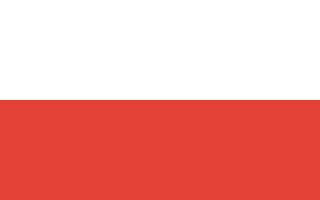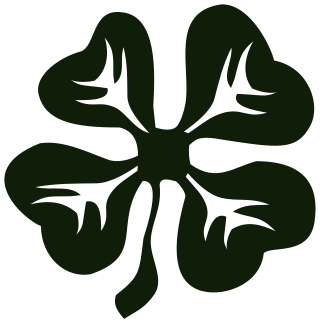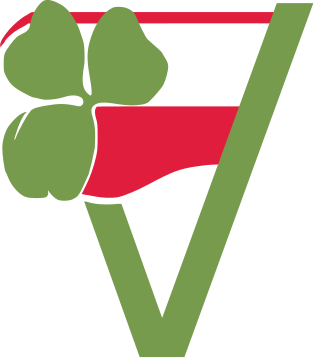The Polish People's Party is an agrarian political party in Poland. It is currently led by Władysław Kosiniak-Kamysz.

Wincenty Witos was a Polish statesman, prominent member and leader of the Polish People's Party (PSL), who served three times as the Prime Minister of Poland in the 1920s.
The people's referendum of 1946, also known as the Three Times Yes referendum, was a referendum held in Poland on 30 June 1946 on the authority of the State National Council. The referendum presented an opportunity for the forces vying for political control of Poland following World War II to test their popularity among the general population. However, the results were forged and the referendum failed to meet democratic standards.

The Provisional Government of National Unity was a puppet government formed by the decree of the State National Council on 28 June 1945 as a result of reshuffling the Soviet-backed Provisional Government of the Republic of Poland established by the Polish Workers' Party through inclusion of politicians from the close political sphere of Stanisław Mikołajczyk, the former prime minister of the Polish government-in-exile based in London. Inclusion of the latter group provided an excuse for the Western allies to approve tacitly the fait accompli of Poland becoming part of the Soviet sphere of influence, and to legitimise the Warsaw government while withdrawing their recognition of the Polish government-in-exile.

The People's Party was a Polish political party, active from 1931 in the Second Polish Republic. An agrarian populist party, its power base was mostly farmers and rural population.

The United People's Party was an agrarian socialist political party in the People's Republic of Poland. It was formed on 27 November 1949 from the merger of the pro-Communist Stronnictwo Ludowe party with remnants of the independent Polish People's Party of Stanisław Mikołajczyk.

Związek Ludowo-Narodowy was a Polish political party aligned with the National Democracy political movement during the Second Polish Republic, gathering together right-wing politicians with conservative and nationalist opinions.
Polish People's Party "Piast" or Polish Peasant Party "Piast" was a political party from the interwar period of the Second Polish Republic (1913–1931). Piast refers to the medieval Piast dynasty, Poland's founding royal house.
Polish Peasant Party "Wyzwolenie" or Polish People's Party "Wyzwolenie" — Wyzwolenie is Polish for Liberation, and many sources translate the party's name fully as Polish Peasant Party "Liberation" or Polish People's Party "Liberation" — was a political party from the interwar period of the Second Polish Republic (1915–1931).
Zygmunt Załęski, pseudonym Gnatowski, was a Polish national movement activist, politician and publicist. He was imprisoned during the years of 1950–1953, rehabilitated in 1956.

Czesław Wycech (1899–1977) was a Polish activist, politician and historian. He was a member of the Polish peasant's parties: the Polish People's Party "Wyzwolenie", the People's Party, the Polish People's Party, and the United People's Party. During World War II he was a member of the Polish Underground State, responsible for organizing underground education. He was the Minister of Education in the Council of National Unity (1945–1947). Within the People's Republic of Poland, he was a member of the Polish parliament (Sejm) and also held other governmental posts.

The Polish People's Party existed in post-World War II Poland from 1945 to 1949. In a period of increasing solidification of communist power in Poland but with the political system retaining some formal adherence to multiparty democracy principles, the PSL was a broadly left-wing non-communist party that was not allied with the communists. The PSL was defeated by the communist-based bloc in the rigged legislative elections of 1947.
The Polish People's Party is a Polish agrarian political party.
The Polish People's Union was a political party in Poland.
The Polish People's Party "Left" was a political party in Poland.

The Polish People's Party – Peasants' Agreement, commonly known simply as Peasants' Agreement (PL), was an agrarian and Christian-democratic political party in Poland.
Piast Faction, informally Piast Party, formerly Polish People's Party "Piast" ; is a political party founded in 2006. Piast refers to the medieval Piast dynasty, Poland's founding royal house. It was created after a 2006 split in the modern PSL party. Its major politicians include Zdzisław Podkański, Janusz Wojciechowski and Zbigniew Kuźmiuk. It was an affiliate party of Libertas.eu.

Irena Kosmowska was a Polish educator and politician. She was one of the first group of women elected to the Legislative Sejm in 1919, serving in parliament until 1930.
The Polish People's Party of Wilno Land was a left-wing political party in the Republic of Central Lithuania. Following the 1922 general elections, it held 13 seats in the Sejm of Central Lithuania. Its ideology consisted of the agrarianism and agrarian socialism, and it supported the authonomy of Central Lithuania from Poland. Its leader was Bronisław Krzyżanowski.








